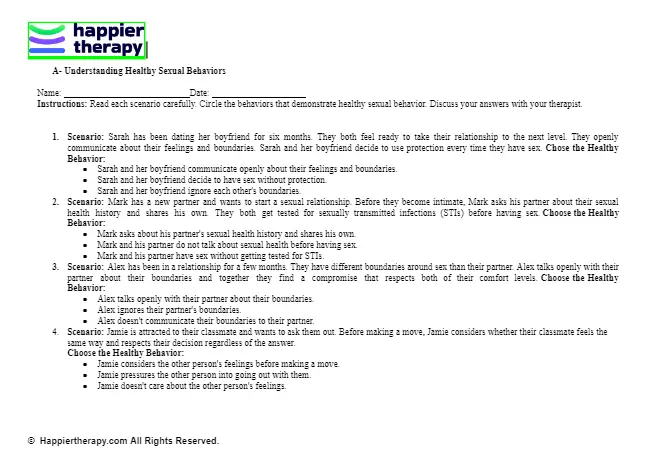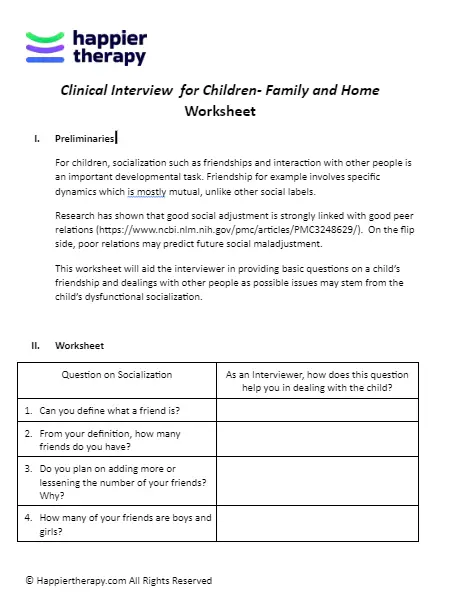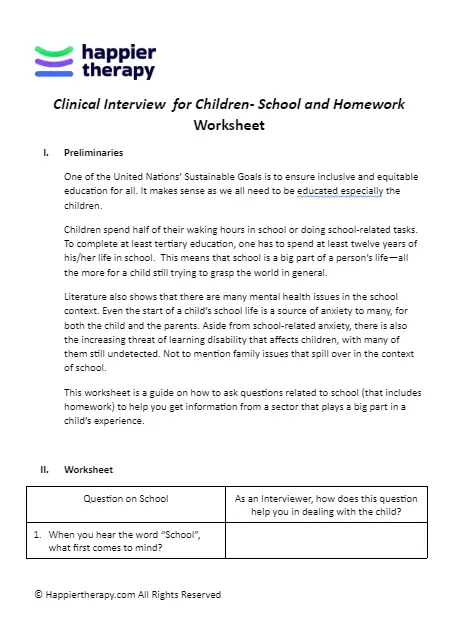close
Author bio
Dr Sabina Alispahic, PhD, is a psychologist and gestalt psychotherapist with expertise in clinical and health psychology.
Dr Sabina Alispahic’s Highlights:
- Associate Professor at the University of Sarajevo for the past 12 years
- PhD in psychology at the University of Zagreb
- European Certificate of Psychotherapy
Professional experience
Dr Alispahic pioneered innovative teaching methods as an associate professor of clinical and health psychology, inspiring a new generation of mental health professionals while contributing to the field for over 12 years. Also, she empowered individuals across the globe as an online psychotherapist, delivering life-changing therapy and earning a reputation for compassionate care and exceptional results. She has demonstrated expertise in a range of therapeutic approaches (CBT, ACT, Gestalt, mindfulness, and family constellations).
Certifications
European Certificate of Psychotherapy (Education in Gestalt Psychotherapy Training of the Malta Institute)
Eight-week stress reduction mindfulness programme, Society of Psychologists in the Federation of Bosnia and Herzegovina
Education
2009-2013 University of Zagreb, Faculty of Philosophy, Postgraduate Doctoral Studies in Psychology
2004-2008 University of Sarajevo, Faculty of Philosophy, Master Studies, Department of Psychology
Publications
Books
Alispahic. S. (2021). Selected topics from psychotherapy Sarajevo: TDP.
Alispahic. S. (2020). Online psychotherapy. Handbook for psychotherapists and clients Sarajevo: TDP.
Alispahic, S., and Godinjak, A. (2018). (R)evolution of the doctor-patient relationship. Sarajevo: TDP.
Alispahic, S. (2016). The psychology of pain Sarajevo: Faculty of Philosophy (e-publication, Bosnian language): https://ebooks.ff.unsa.ba/index.php/ebooks_ffunsa/catalog/book/29
Book chapters
Alispahic, S. (2018). Psychological Theory and Therapy of Traumatic Memory In: A. Hamburger (ur.), Trauma, Trust, and Memory: Social Trauma and Reconciliation in Psychoanalysis, Psychotherapy, and Cultural Memory, 23-35. London and New York: Routledge, Taylor & Francis Group.
Link: https://www.taylorfrancis.com/chapters/edit/10.4324/9781003076247-4/psychological-theory-therapy-traumatic-memory-sabina-alispahić
Markovic Pavlovic, M., Alispahic, S., and Dautbegovic, A. (2015). Psychology of Nonkilling in Bosnia-Herzegovina. Knowledge and Attitudes of Students Towards Nonkilling Culture. In: R. Bahtijaragic i J. E. Pim (ur.), Nonkilling Balkans, 171-183. Honolulu: Centre for Global Nonkilling, and Sarajevo: Faculty of Philosophy.
Link: http://nonkilling.org/pdf/nkbalkans.pdf
Articles
Alispahic, S., & Alispahic, B. (2021). Definition of police psychology: The role of psychologists in the police. Technium Soc. Sci. J., 17, 235-244.
Link: https://techniumscience.com/index.php/socialsciences/article/view/2678
Alispahic, S., Hasanbegovic-Anic, E., & Tuce, Đ. (2021). Big Five Personality Traits as Predictors of Mindfulness: A Study on a Bosnian Sample. Epiphany, 14(1), 146-155.
Link: http://epiphany.ius.edu.ba/index.php/epiphany/article/view/357
Alispahic, S. & Hodžić Küreç, A. (2021). How does yoga affect health? Yoga teachers’ experiences. International Scientific Journal of Kinesiology, Vol. 12, 2, 135-140.
Link: https://www.researchgate.net/profile/Sabina-Alispahic/publication/349140097_How_does_yoga_affect_health_Yoga_teachers_experiences/links/60226c87a6fdcc37a812def3/How-does-yoga-affect-health-Yoga-teachers-experiences.pdf
Hasanbegovic-Anic, E., Sandic, A., and Alispahic, S. (2018). Prevention of substance abuse in children and adolescents: an evidence-based practice approach. Epiphany, 11(1), 11-30.
Link: http://epiphany.ius.edu.ba/index.php/epiphany/article/view/280
Alispahic, S. and Hasanbegovic-Anic, E. (2017). Mindfulness: Age and Gender Differences in a Bosnian Sample. Psychological Thought, Vol. 10 (1), 155–166.
Link: https://www.researchgate.net/publication/316560770_Mindfulness_Age_and_Gender_Differences_on_a_Bosnian_Sample
Hadziahmetovic, N., Alispahic, S., Tuce, Đ., i Hasanbegovic-Anic, E. (2016). Therapist interpersonal style and therapy benefit as determinants of client personality self-reports in Bosnia and Herzegovina. Vojnosanit Pregl, 73 (2): 135–145.
Link: https://www.researchgate.net/publication/288178501_Therapist%27s_interpersonal_style_and_therapy_benefit_as_the_determinants_of_personality_self-reports_in_clients
Alispahic, S., Hasanbegovic-Anic, E., Tuce, Đ., Hadziahmetovic, N., Sandic, A. (2014). Characteristics of Patients Involved in Psychotherapy in Bosnia and Herzegovina. Journal of Health Sciences, 4 (1): 4-6.
Link: https://www.jhsci.ba/ojs/index.php/jhsci/article/view/142
Alispahic, S. (2013). Motivational function of plans and goals. Psychological Thought, Vol. 6 (2), 96–203.
Link: https://www.researchgate.net/publication/258225796_Motivational_Function_of_Plans_and_Goals
Professional profiles
ResearchGate: https://www.researchgate.net/profile/Sabina-Alispahic
Google Scholar: https://scholar.google.com/citations?hl=hr&user=TnYiVK0AAAAJ
LinkedIn: https://www.linkedin.com/in/sabina-alispahić/
close
Reviewer bio
Dr Sabina Alispahic, PhD, is a psychologist and gestalt psychotherapist with expertise in clinical and health psychology.
Dr Sabina Alispahic’s Highlights:
- Associate Professor at the University of Sarajevo for the past 12 years
- PhD in psychology at the University of Zagreb
- European Certificate of Psychotherapy
Professional experience
Dr Alispahic pioneered innovative teaching methods as an associate professor of clinical and health psychology, inspiring a new generation of mental health professionals while contributing to the field for over 12 years. Also, she empowered individuals across the globe as an online psychotherapist, delivering life-changing therapy and earning a reputation for compassionate care and exceptional results. She has demonstrated expertise in a range of therapeutic approaches (CBT, ACT, Gestalt, mindfulness, and family constellations).
Certifications
European Certificate of Psychotherapy (Education in Gestalt Psychotherapy Training of the Malta Institute)
Eight-week stress reduction mindfulness programme, Society of Psychologists in the Federation of Bosnia and Herzegovina
Education
2009-2013 University of Zagreb, Faculty of Philosophy, Postgraduate Doctoral Studies in Psychology
2004-2008 University of Sarajevo, Faculty of Philosophy, Master Studies, Department of Psychology
Publications
Books
Alispahic. S. (2021). Selected topics from psychotherapy Sarajevo: TDP.
Alispahic. S. (2020). Online psychotherapy. Handbook for psychotherapists and clients Sarajevo: TDP.
Alispahic, S., and Godinjak, A. (2018). (R)evolution of the doctor-patient relationship. Sarajevo: TDP.
Alispahic, S. (2016). The psychology of pain Sarajevo: Faculty of Philosophy (e-publication, Bosnian language): https://ebooks.ff.unsa.ba/index.php/ebooks_ffunsa/catalog/book/29
Book chapters
Alispahic, S. (2018). Psychological Theory and Therapy of Traumatic Memory In: A. Hamburger (ur.), Trauma, Trust, and Memory: Social Trauma and Reconciliation in Psychoanalysis, Psychotherapy, and Cultural Memory, 23-35. London and New York: Routledge, Taylor & Francis Group.
Link: https://www.taylorfrancis.com/chapters/edit/10.4324/9781003076247-4/psychological-theory-therapy-traumatic-memory-sabina-alispahić
Markovic Pavlovic, M., Alispahic, S., and Dautbegovic, A. (2015). Psychology of Nonkilling in Bosnia-Herzegovina. Knowledge and Attitudes of Students Towards Nonkilling Culture. In: R. Bahtijaragic i J. E. Pim (ur.), Nonkilling Balkans, 171-183. Honolulu: Centre for Global Nonkilling, and Sarajevo: Faculty of Philosophy.
Link: http://nonkilling.org/pdf/nkbalkans.pdf
Articles
Alispahic, S., & Alispahic, B. (2021). Definition of police psychology: The role of psychologists in the police. Technium Soc. Sci. J., 17, 235-244.
Link: https://techniumscience.com/index.php/socialsciences/article/view/2678
Alispahic, S., Hasanbegovic-Anic, E., & Tuce, Đ. (2021). Big Five Personality Traits as Predictors of Mindfulness: A Study on a Bosnian Sample. Epiphany, 14(1), 146-155.
Link: http://epiphany.ius.edu.ba/index.php/epiphany/article/view/357
Alispahic, S. & Hodžić Küreç, A. (2021). How does yoga affect health? Yoga teachers’ experiences. International Scientific Journal of Kinesiology, Vol. 12, 2, 135-140.
Link: https://www.researchgate.net/profile/Sabina-Alispahic/publication/349140097_How_does_yoga_affect_health_Yoga_teachers_experiences/links/60226c87a6fdcc37a812def3/How-does-yoga-affect-health-Yoga-teachers-experiences.pdf
Hasanbegovic-Anic, E., Sandic, A., and Alispahic, S. (2018). Prevention of substance abuse in children and adolescents: an evidence-based practice approach. Epiphany, 11(1), 11-30.
Link: http://epiphany.ius.edu.ba/index.php/epiphany/article/view/280
Alispahic, S. and Hasanbegovic-Anic, E. (2017). Mindfulness: Age and Gender Differences in a Bosnian Sample. Psychological Thought, Vol. 10 (1), 155–166.
Link: https://www.researchgate.net/publication/316560770_Mindfulness_Age_and_Gender_Differences_on_a_Bosnian_Sample
Hadziahmetovic, N., Alispahic, S., Tuce, Đ., i Hasanbegovic-Anic, E. (2016). Therapist interpersonal style and therapy benefit as determinants of client personality self-reports in Bosnia and Herzegovina. Vojnosanit Pregl, 73 (2): 135–145.
Link: https://www.researchgate.net/publication/288178501_Therapist%27s_interpersonal_style_and_therapy_benefit_as_the_determinants_of_personality_self-reports_in_clients
Alispahic, S., Hasanbegovic-Anic, E., Tuce, Đ., Hadziahmetovic, N., Sandic, A. (2014). Characteristics of Patients Involved in Psychotherapy in Bosnia and Herzegovina. Journal of Health Sciences, 4 (1): 4-6.
Link: https://www.jhsci.ba/ojs/index.php/jhsci/article/view/142
Alispahic, S. (2013). Motivational function of plans and goals. Psychological Thought, Vol. 6 (2), 96–203.
Link: https://www.researchgate.net/publication/258225796_Motivational_Function_of_Plans_and_Goals
Professional profiles
ResearchGate: https://www.researchgate.net/profile/Sabina-Alispahic
Google Scholar: https://scholar.google.com/citations?hl=hr&user=TnYiVK0AAAAJ
LinkedIn: https://www.linkedin.com/in/sabina-alispahić/

 By
By


